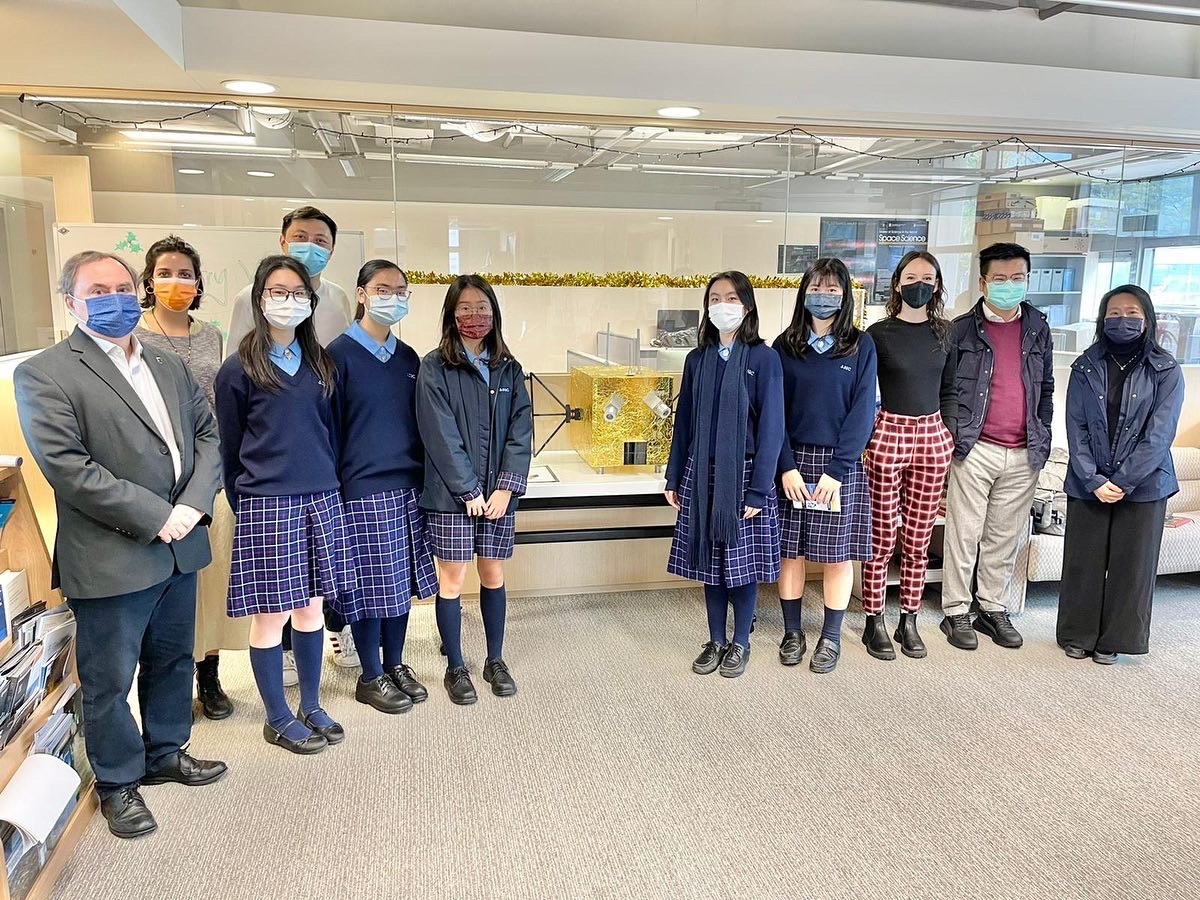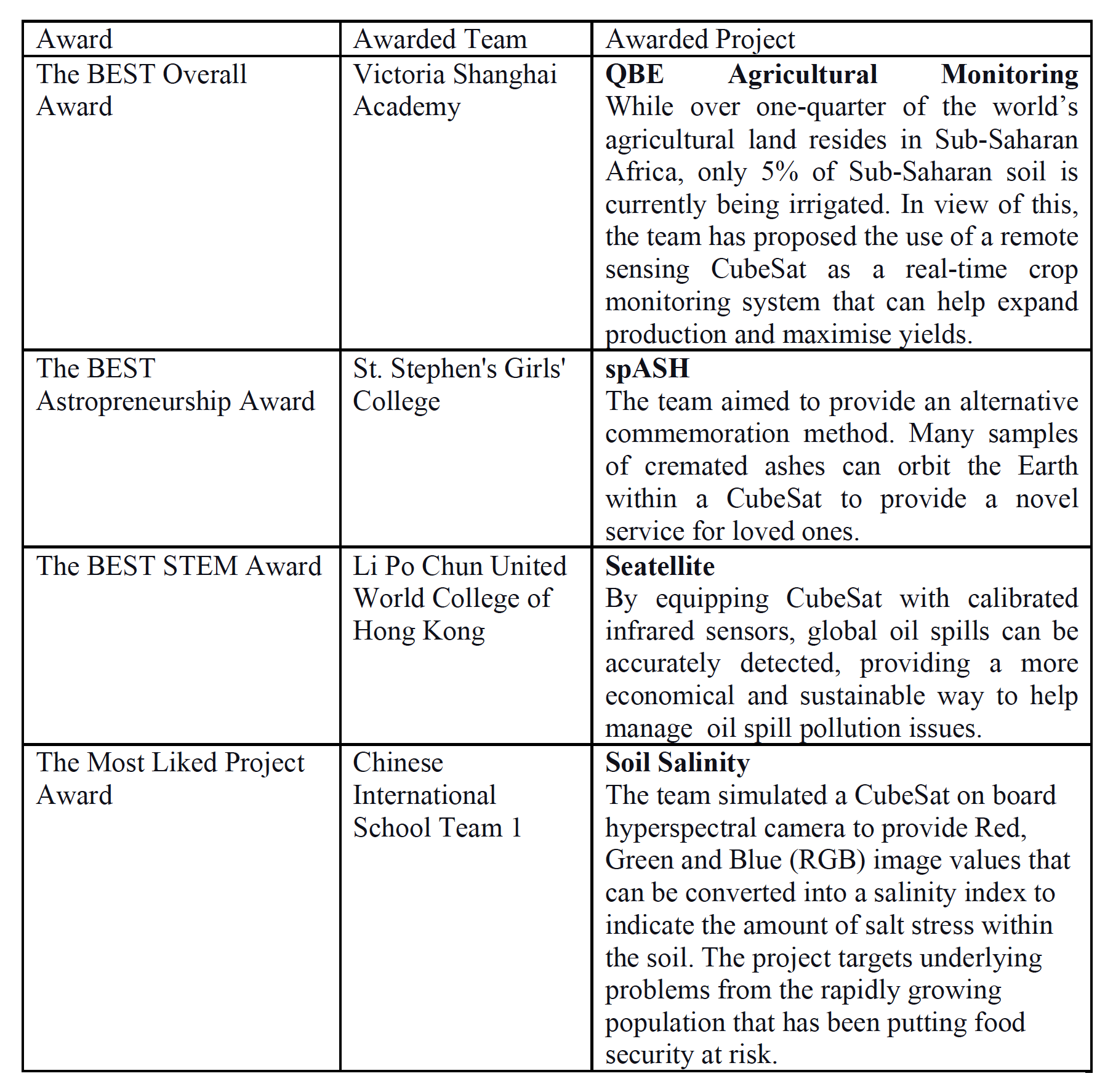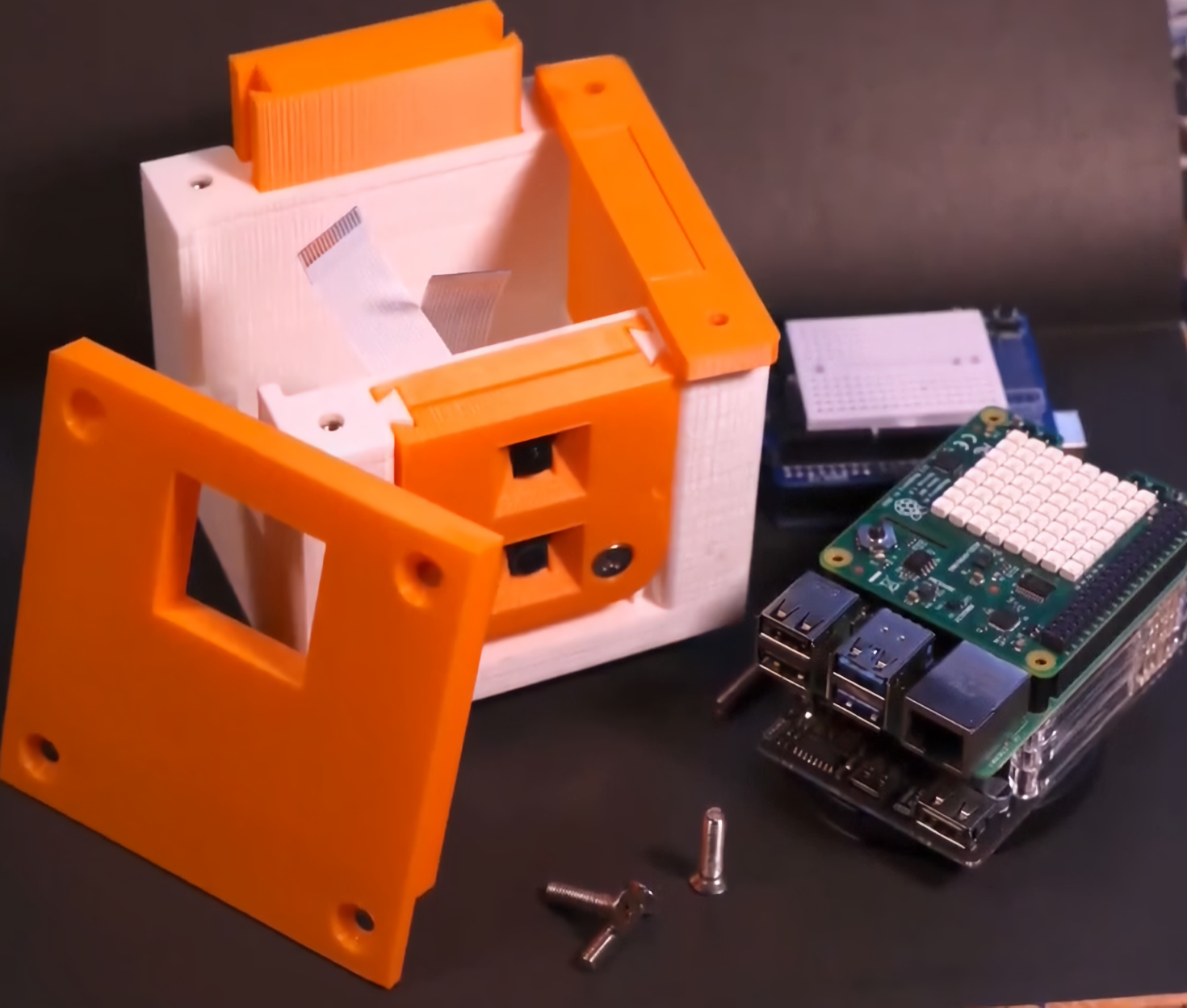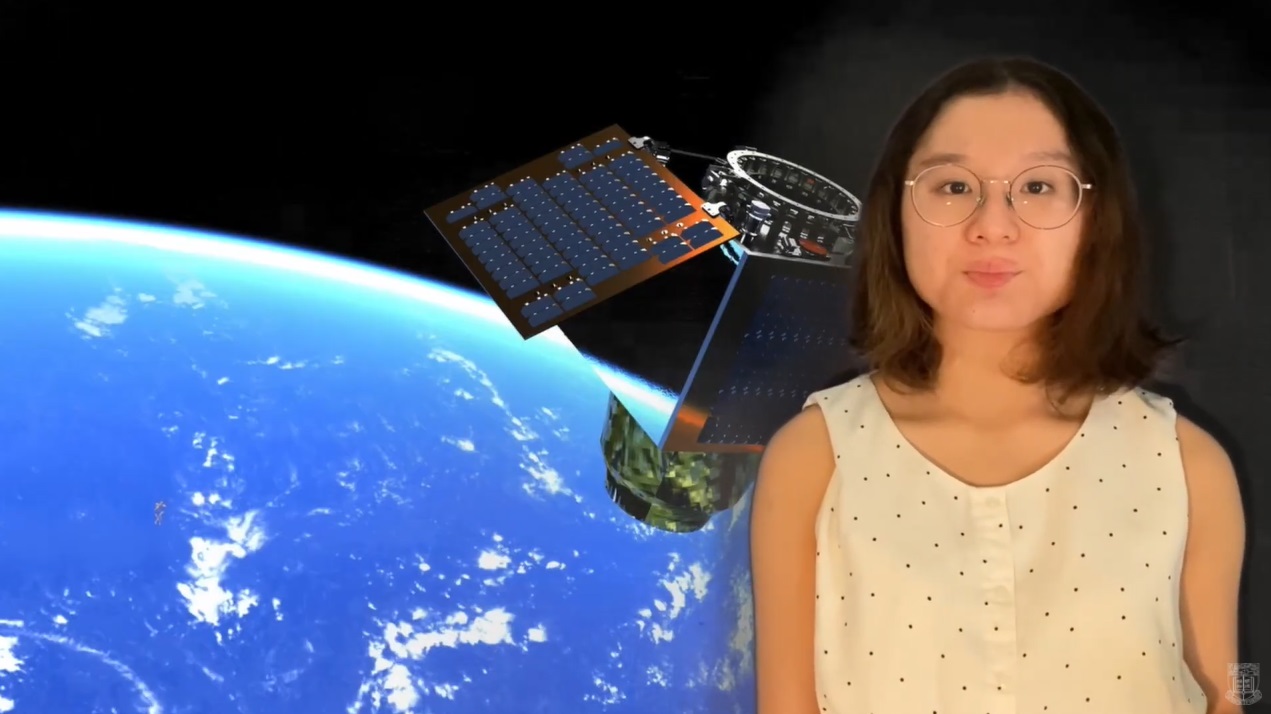Secondary School Students team up to simulate production of “CubeSat” prototypes to unfold business opportunities in the “NewSpace” era
The Business & Economy in Space Technology (BEST) programme, the first-of-its-kind Space Technology initiative in Hong Kong for secondary school students, has come to an end with roaring success. “BEST” is a guided, STEM-based, hands-on and immersive, interdisciplinary educational experience with a strong entrepreneurial edge. It is based around a CubeSat concept & a design programme that has resulted in an astonishing level of quality and ideas from participating schools.
The programme was co-organised by the HKU Academy for the Talented, the HKU Laboratory for Space Research and the Orion Astropreneur Space Academy (OASA), with an aim to nurture the next generation of STEM “Astropreneur.”. Participants attended a two-semester series of educational talks and workshops with professional mentorship guidance to learn how Space Technology and Space Data can bring immense business opportunities in the “New Space” era.

Professor Quentin Parker, Director of the HKU Laboratory for Space Research and the Business and STEM Mentors offer professional guidance to the St. Stephen’s Girls’ College team on their project “spASH”.
A total of 22 school teams participated in the programme, including Carmel Pak U Secondary School, Shung Tak Catholic English College, Queen’s College, St. Stephen’s Girl’s College, Victoria Shanghai Academy, and Chinese International School etc. The teams applied Space Technology to design a “CubeSat” that can tackle critical issues and imminent challenges under the United Nations’ 17 Sustainable Development Goals. Their projects yielded some exciting business opportunities in the “New Space” Era that can contribute to the future development of Hong Kong, the GBA and mankind.
“The judging panel for the final competition is comprised of industry professionals, including Mr Howard Cheng, the Chief Operating Officer of Cyberport, and Professor Quentin Parker, the Director of HKU Laboratory of Space Research. The “BEST Overall Award” was awarded to Victoria Shanghai Academy’s project “QBE Agricultural Monitoring”. The team proposed the use of a remote sensing CubeSat as a real-time crop monitoring system for farmers that can expand production and maximise yields. One of the team members, Nicole Tse, said: “I got to explore Space Economy and gained hands-on experiences, and this really inspired me to consider studying related programmes in the future.” Team captain Michael Tong also said: “Our mentors guided us throughout our journey and were really helpful. They pointed out our blind spots and provided us with new perspectives, we have learnt a lot from this project.”
The “The BEST Astropreneurship Award” was won by St. Stephen’s Girls’ College. Its project “spASH” worked on a meaningful initiative that allows people to commemorate deceased loved ones in a special way. They proposed an affordable commemoration service by sending small samples of cremated ashes into earth orbit with a CubeSat. The in-orbit camera can send back pictures of earth, and the CubeSat also allows people to send commemorating messages to Space. Ms. Yau, a teacher from St. Stephen’s Girls’ College said: “Students can truly explore interdisciplinary STEM topics when choosing their project topic. In the process of building a CubeSat, students have to ensure that their final project is technically feasible and that their marketing plan could be carried out. It was truly an unforgettable STEM learning experience for the school team.”
The judging panel appreciated the ideas and designs of all the projects and praised the teams for coming up with innovative CubeSat concepts that are very innovative and even better than many similar competitions The teams put forward specific solutions targeting global issues, while at the same time taking into account the commercial and technical aspects of the project. The overall plans are comprehensive and feasible, and are comparable to the designs from students in tertiary institutions and start-up companies.
Professor Bennett Yim, Director of Undergraduate Admissions and International Student Exchange, said that he was delighted to see the outstanding performance of all teams. The global Space Economy is one of the main areas of development in today’s digitalized world. HKU hopes that through this programme, secondary school students can gain a deeper understanding of such cutting-edge scientific knowledge and technology, and join the new generation of Space Economy entrepreneurs.
Below are the details of the winning teams:
Check out the winning school team videos from the BEST programme (5mins each):
https://cubesat.hku.hk/school-teams

Victoria Shanghai Academy’s QBE Agricultural Monitoring, a remote sensing CubeSat as a real-time crop monitoring system that can help expand production and maximise yields.

The school team from Li Po Chun United World College of Hong Kong provides a more economical and sustainable way to solve oil spill pollution issues by equipping CubeSat with infrared sensors that accurately detect the scope of oil spills.
The Business & Economy in Space Technology (BEST) programme
The Business & Economy in Space Technology (BEST) programme is supported by the HKU Academy for the Talented, the HKU Laboratory for Space Research and the Orion Astropreneur Space Academy (OASA). It is the first-of-its-kind Space Technology initiative in Hong Kong for secondary school students that is aimed at nurturing the next generation of “Astropreneur.” Participants attend workshops with professional mentorship guidance to learn how Space Technology and Space Data can bring immense business opportunities in the “New Space” era.

